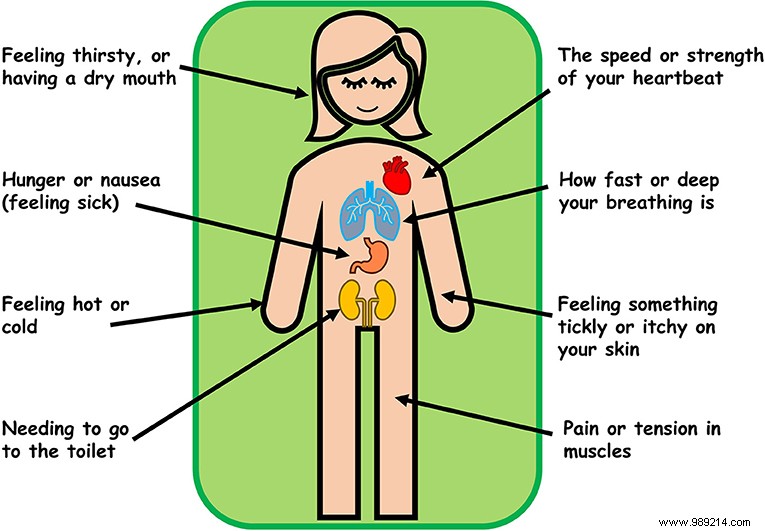Recently, a British study highlighted an astonishing phenomenon. People with a negative perception of their body could be subject to a poor connection between their brain and their internal organs. Individuals more concerned about their weight would be concerned with weak brain responses to signals sent by the intestine.
Many psychological researchers have conducted work regarding the perception that individuals have of their own bodies. Nevertheless, this question is also explored by neuroscientists , including Jane Aspell of Anglia Ruskin University (UK). In his study published in the journal Cortex on September 2, 2021, the specialist evokes an alteration in the perception of the body by poor reception of electrical signals between the intestines, the heart and the brain.
According to Jane Aspell, what is called "body experience" separates into two parts , namely that of the exterior and that of the interior. At the level of these two parts, individuals are aware of their limbs, their skin, the beating of their heart, or even their hunger. However, these same people are unaware of internal signals that the organs constantly exchange with each other.
Thanks to her research, the neuroscientist believes that poor reception of the messages that the gut and heart send to the brain are capable of negatively affecting the perception individuals have of their own bodies. This is about interoception (see diagram below), which is therefore subject to disturbance.

As part of the work, the researcher and her team tested a group of healthy adults. These volunteers were questioned about their relationship to their own body, and in particular the possibility that a feeling of shame (or concern) about their weight was present. Then, the study leaders recorded brain and intestinal electrical activity – then cerebral and cardiac – of each volunteer.
According to the results, low brain responses in the interaction between the intestine and the brain correspond to a high level of body shame . There is also a greater concern related to weight. As Jane Aspell explains, we have abnormal interoception here. The brain would then put more emphasis on physical appearance – and therefore the weight – giving it more importance, when it comes to a weaker connection between the brain and the “internal body” .
This work could provide answers to people with a negative perception of their body. However, this perception can have a far from negligible impact on daily life of these people. Measures could then be taken to identify and why not prevent these alterations in the perception of the body. The results of this study would therefore have a chance of improving the lives of people subject to eating disorders, whose number is around 900,000 in France.